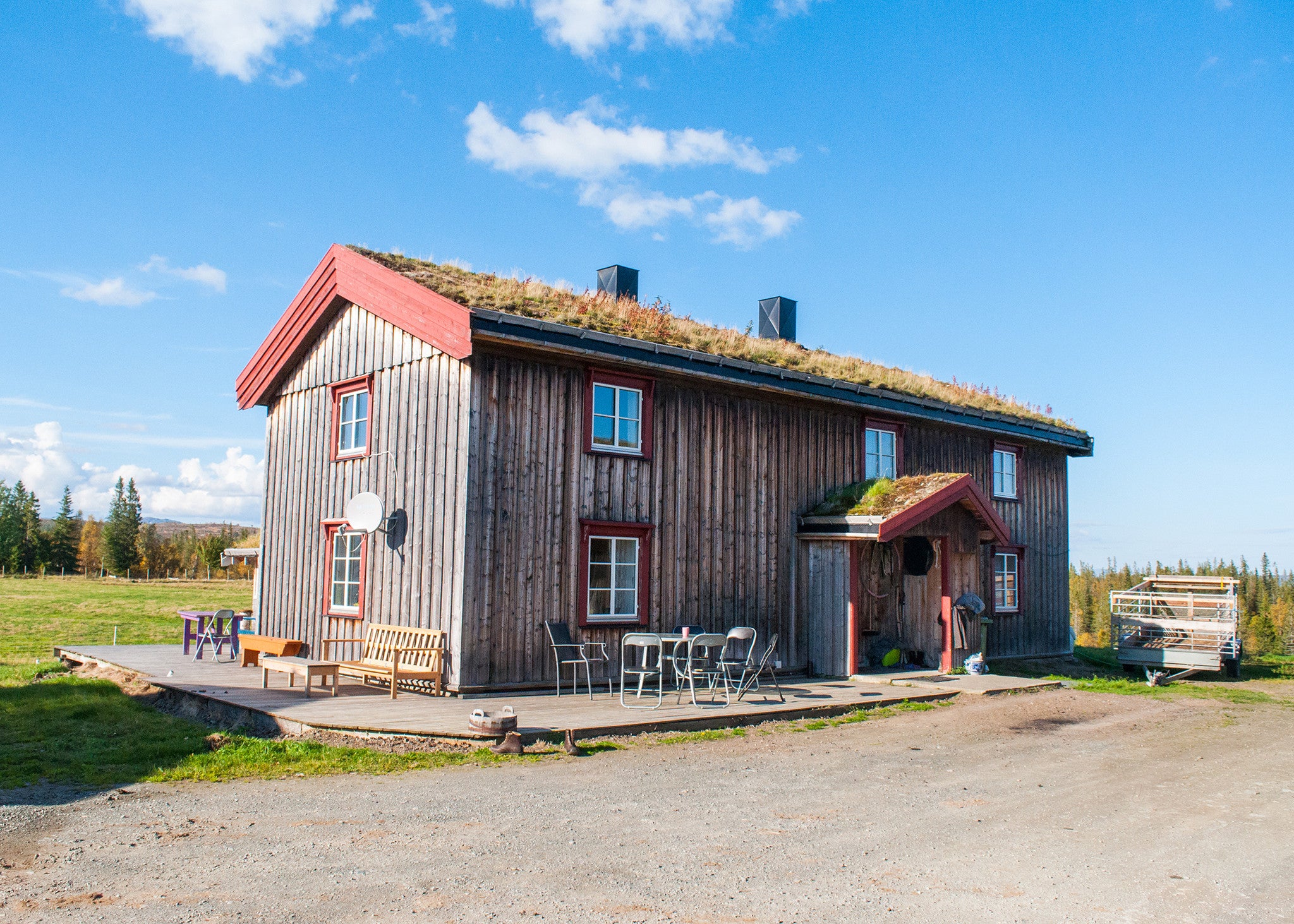Our Story
My great-great-great grandma, Ingeborg Johnsdatter Gilsåmo* lived on a small farm called Gilsåmo, named after its location on the moor of the Gils River in Meråker, Norway. Ingeborg met Petter Anderson Rotvold, married and later immigrated to Baltic, South Dakota, USA.
Generations later and I was born, Melissa Hoang. My sense of adventure took me all over the world and in 2016, to my Norwegian homeland. Olav, Audhild, Anne, Leander, and many more of my kin in Norway welcomed us with open arms and open hearts.
Seeing the Gilsamo farm in real time and literally feeling the walls and sensing the history that happened here.. it was life-changing. It was my “this is it” moment! This trip empowered me to sink deeper into my familial identity and when it came time to bring my vision to fruition, the name was a no-brainer for me.
I kept Gilsamo close to my heart for a long time. I wanted to experiment and make sure that I was building a brand that was 100% true to me. At first, I was swayed by the industry but all my experiences leading up to 2019 helped ground me and gave me the tools I needed to translate myself into my business. I was raised on a strong foundation of family, trust, and honor, and aim towards bringing those same values to you through my brand.
_________________________________________________________________
Gilsamo is helping you build a more thoughtful, capsule wardrobe. We believe that less is more when it comes to your home & closet. We want you to actually wear the clothing you own (like, a lot). We believe that the most sustainable garment is the one with seasonless design that stands the test of time. This is why we believe in clothing that can simplify your life by taking you from day to night, work to weekend, and South Dakota to Norway.
We are dedicated to being responsible in every aspect of our business, because we believe that the little things can make a big difference. Our packing materials are made from 100% eco-conscious materials, ranging from recycled, recyclable, and biodegradable. We understand that every aspect of our supply chain has an impact on people & the planet, and we strive to be more responsible and sustainable with each new collection.
Our customer is a creative-minded woman, who wants to look like herself, not the masses. She has a sense of adventure about what she wears, and although fashion is important to her, she is too busy enjoying life to be governed by the latest trends. To her, Gilsamo is a portal of discovery – a brush with what could be. A place for her to lose – and find – herself.
_________________________________________________________________
* In Norway prior to the 1860s families did not use fixed surnames. They used a patronymic pattern in which children were named after their father. Hence, John Andersen = John, the son of Anders. And Mari Andersdatter = Mari, the daughter of Anders. Anders himself would be named Anders Olafsen = Anders, the son of Olaf.
This system can get confusing when you encounter names as common as Ole Olsen or Nils Hansen, so they often used their farm names to clarify their identity when conducting official business or traveling. In church records, for example, they would typically append the farm name to the patronymic name to be more precise, for example “Anders Olafsen Sandness” (or “Anders Olafsen på (from) Sandness” if Anders merely worked at Sandness). It’s very important to keep in mind that when a farm name is used, it is the farm at which they currently reside, rather than the farm at which they were born. Your farm name changed as you moved from farm to farm. The use of farm names is very helpful to keep in mind when looking at old records, since Norway only gradually adopted fixed surnames from the mid-1800s until they were required in 1923.

